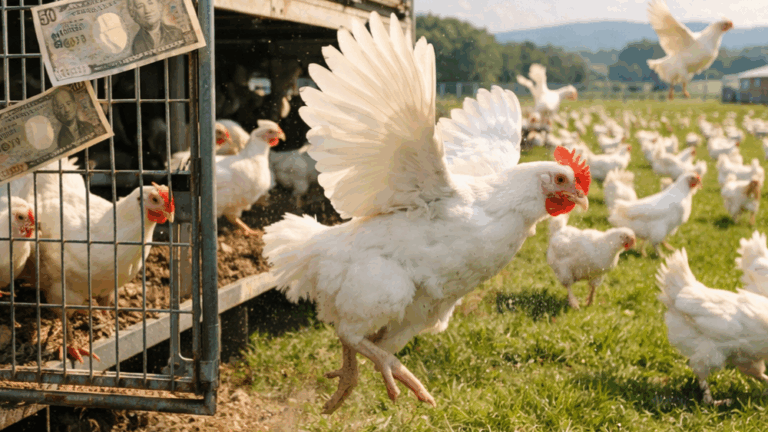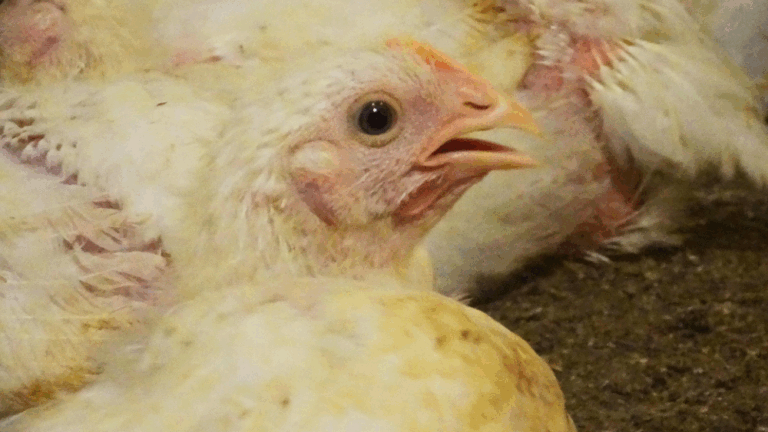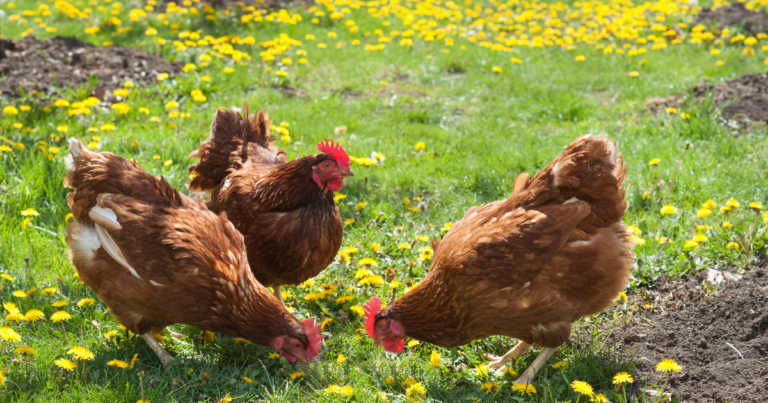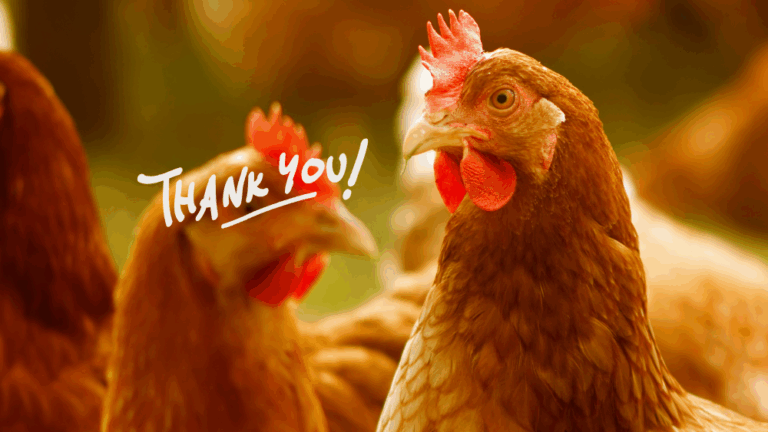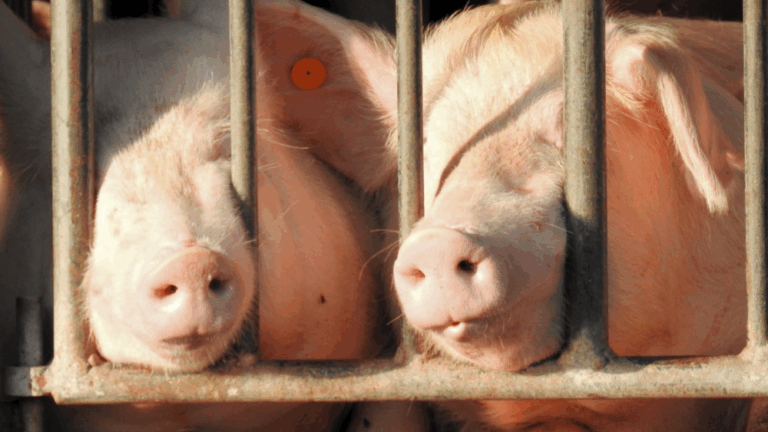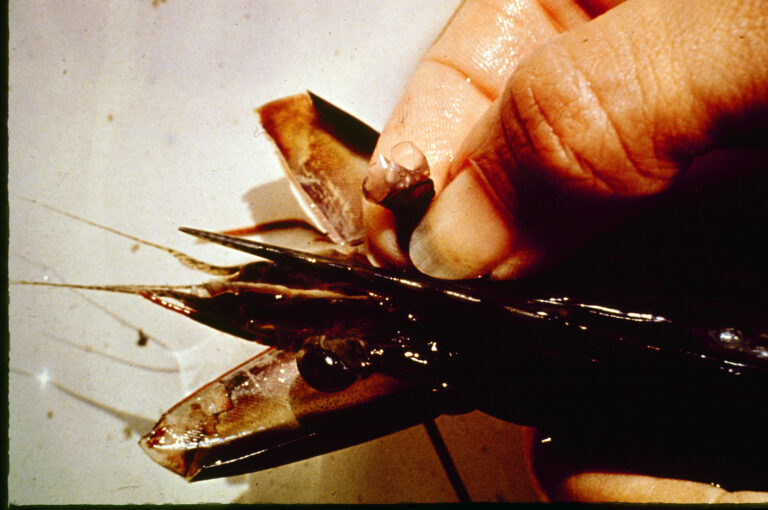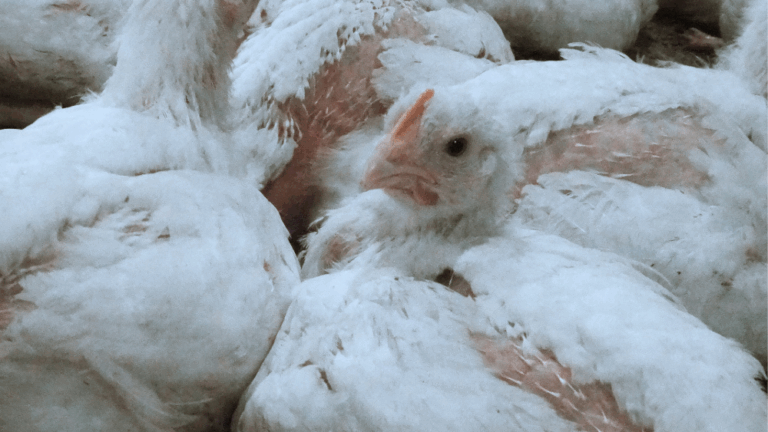Since 2016, Animal Rights Center Japan has been conducting a survey once a year using a private company to see how well the actual rearing of livestock animals is recognized by consumers.
We report the results of the survey conducted in 2021 (the number of valid replies was 1,207).
The questions are the following 10 items:
- Do you know that many of the sows are trapped in a gestation crate, a narrow enclosure in which they can’t turn around?
- Do you know that many of the piglets are castrated and have their teeth and tails clipped without anesthesia?
- Do you know that many of the chickens for eggs are kept within small metal mesh enclosures called battery cages (about 22 cm x 22 cm per chicken)?
- Do you know that many of the chickens for eggs have their beaks trimmed without anesthesia?
- Do you know that chickens for meat (broilers) have been bred for faster growth and, as a result, are more susceptible to illness?
- Do you know that many of the dairy cows spend most of their time tied up?
- Do you know that many of the cattle are castrated and dehorned without anesthesia?
- Do you know the term “animal welfare”?
- Do you know that cage-free or free-range eggs are sold at supermarkets?
- Do you know that rearing methods banned in Europe are practiced in Japan?
Respondents answered these questions by choosing from “I know”, “I’ve heard”, and “I don’t know”.
The average awareness of all ten issues
The “awareness” was calculated as the sum of the percentages of “I know” and “I’ve heard”. As Figure 1 shows, the average awareness of all ten issues increased slightly from 2016 to 2018, and then it has not changed since 2018.
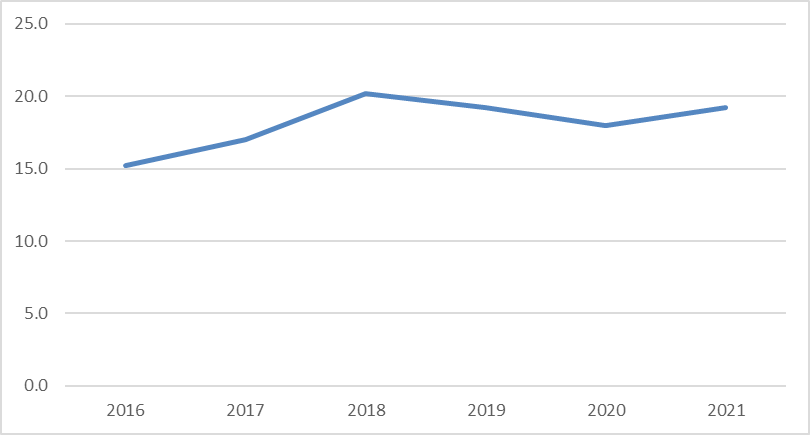
2016 15.2%, 2017 17.0%, 2018 20.2%, 2019 19.2%, 2020 18.0%, 2021 19.2%
Difference in the average awareness among generations
As was the case in the previous years, younger generations are more likely to recognize issues of animal welfare in livestock rearing than older generations. We can therefore expect that the awareness will increase in the future. However, about 80% of the people still respond “I don’t know” about the actual situations of livestock animals.
| 15-19 | 24.95% |
| 20-29 | 23.45% |
| 30-39 | 16.55% |
| 40-49 | 14.55% |
| 50-59 | 16.98% |
| 60- | 18.85% |
animal welfare among generations
It was after the war that factory-style livestock farming spread in Japan, and in the minds of most people, animals are still living in spacious pastures, grazing freely, poking the ground, and digging holes. These positive image may remain especially in the older generations. Unfortunately, the reality is not so. In modern factory-type livestock farming, many animals are suffering from their inability to express natural behaviors (turning around, spreading wings, walking and running).
2021 Survey
[Survey name] Survey regarding livestock animals (meat / eggs / dairy)
[Surveying sponsor] Certified nonprofit organization Animal Rights Center Japan
[Survey period] 2021/3/15 – 2021/3/15
[Valid responses] 1,207
[Survey design] Via: internet survey (Net Monitor)
[Survey area] All of Japan
[Target condition] From Net Monitor, men & women ages 15+ were targeted
2016-2021 Awareness survey results
The survey data can be downloaded from the link at the bottom.
Please feel free to use, citing Animal Rights Center Japan.
■ I don’t know
■ I have heard
■ I know
* Question #5 was not used in 2016.





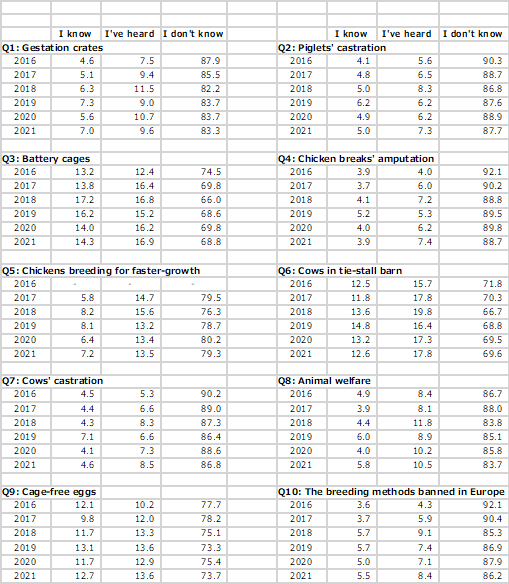
Survey data download (Excel file)
*Please feel free to use, citing the certified nonprofit organization Animal Rights Center Japan (https://arcj.org/en/).
2016-2021 Awareness Survey regarding Livestock Animals
Original data: GT集計
English translation help: Mr. Furuse




